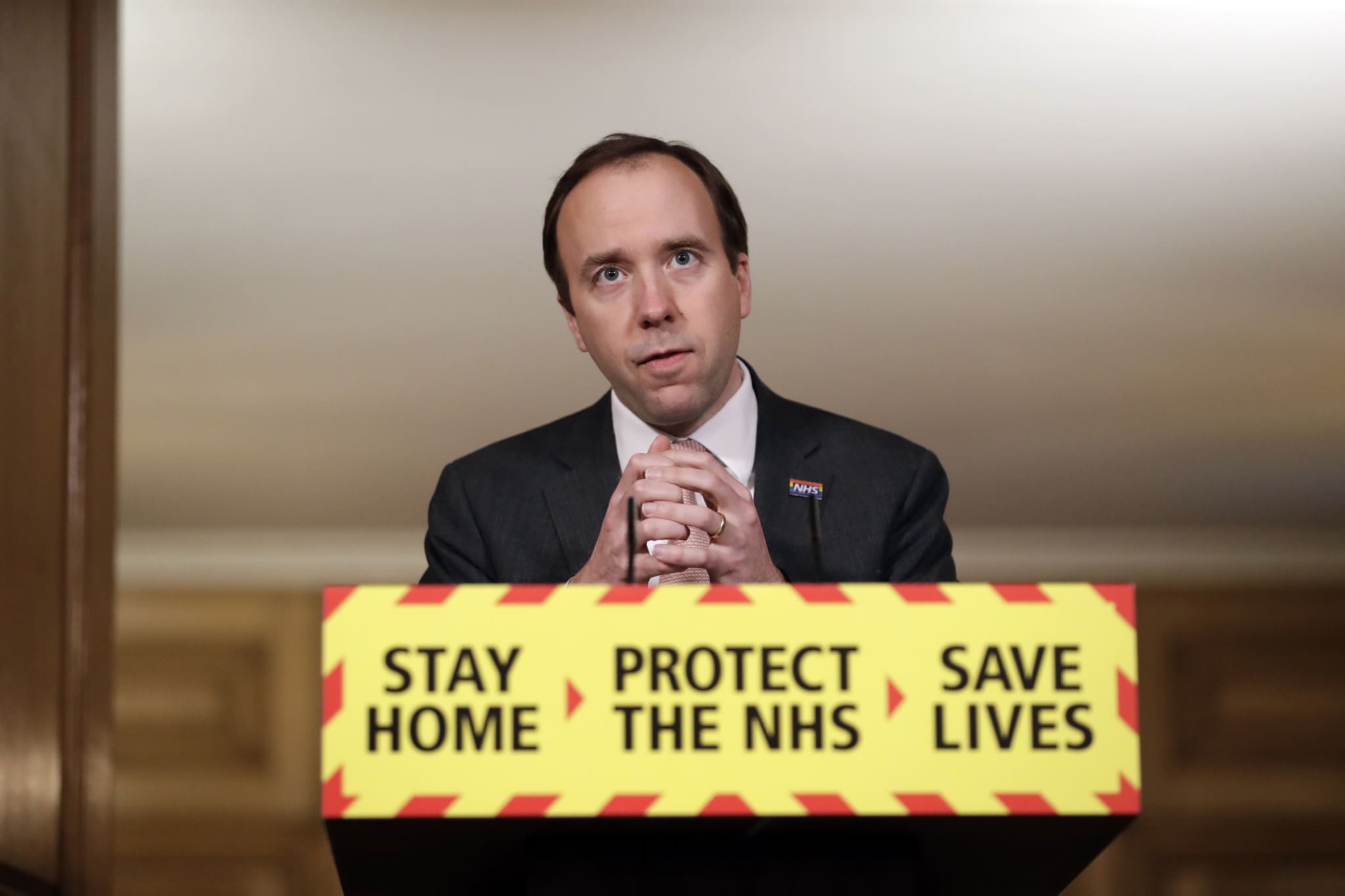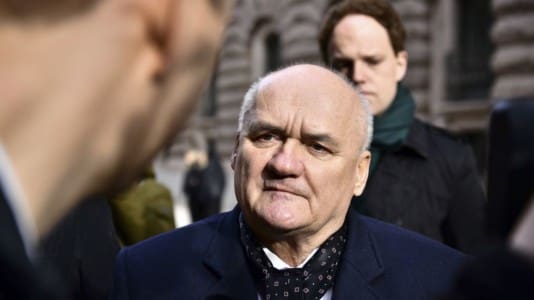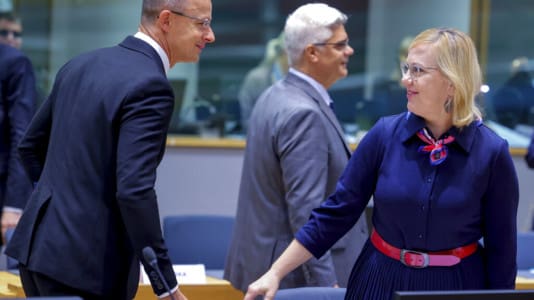A discussion has been developing for months in the United Kingdom more than in any other European country about the policies that were put in force to fight the Covid-19 pandemic and whether they should be repeated if a similar pandemic were to happen again. In the years 2020-2021, the U.K. went through several lockdowns, with some of Europe’s most stringent restrictions.
At all times, Boris Johnson’s government insisted its decisions were necessary and based on science. It is true to say, the U.K. was also among the first countries in Europe to lift all restrictions in January 2022 after most of the population had been vaccinated.
However, the “Partygate” scandal, which led Prime Minister Boris Johnson to step down last summer, made it clear that the ruling class did not think it necessary to abide by the rules it had imposed on the general population.
Now, thousands of WhatsApp messages leaked from the then Health Secretary Matt Hancock have been revealed by The Telegraph and bring new evidence of the political – not scientific – grounds on which Johnson’s cabinet took decisions with far-reaching consequences for the everyday life of ordinary citizens, and also on the U.K. economy and public finances.
Most likely, the situation was no different in other European countries where identical policies were deployed with similar effects.
Matt Hancock’s messages were leaked to The Telegraph by journalist Isabel Oakeshott who was helping him write his book about the coronavirus crisis. Although she had signed a non-disclosure agreement before she was handed the files containing the text communications the health secretary had with his colleagues and top civil servants at the time, Ms. Oakeshott felt it was in the public interest to disclose those messages, “to avoid a whitewash,” as she said when explaining her decision.
Thanks to the leaked messages, we now know for sure that there was a well-thought-out strategy to instill fear into the general public in order for people to comply with the lockdown rules and accept that their most basic civil rights could be taken away for some time. In his conversations with civil servants, the U.K. health secretary talked of the need to “frighten the pants off everyone” and to “deploy” a new variant of the virus to that purpose.
Hancock appeared to be engaged in bitter rows with the then Chancellor of the Exchequer Rishi Sunak, who is now the country’s prime minister, a position from which he has just rebuked his former cabinet colleague over his WhatsApp discussion concerning the need to pressure a Conservative MP to vote in favor of new lockdown restrictions by threatening to block funding for a new center for the disabled that the MP had been campaigning for.
The health secretary was also in disagreement with Education Secretary Gavin Williamson who was in favor of keeping classrooms open.
The Telegraph writes: “Matt Hancock mounted a ‘rearguard action’ to close schools despite Sir Gavin Williamson battling ‘tooth and nail’ to keep classrooms open, leaked WhatsApp messages reveal.”
Moreover, the health secretary refused to exempt children from the “rule of six,” prohibiting social gatherings of more than six people, and the use of face masks in spite of evidence showing there was “no robust rationale” for these rules to continue to apply to children.
The messages show that a key argument to force children into wearing masks in schools was to avoid confronting Scotland’s First Minister Nicola Sturgeon, who resigned last month, in part over the stir created by her insistence a convicted male rapist who said he now self-identifies as a woman should be sent to a women’s prison.
Hancock also did not want to shorten the 14-day isolation period for those having been in contact with a person who tested positive for Covid-19. When presented with scientific evidence that it was enough to test isolated people every day for five days, he answered that it “would seriously worry people and imply we’d been getting it wrong.”
The health secretary actually discussed with a “wise friend” how the Covid-19 pandemic could propel his career “into the next league.” In another conversation, he even joked with Simon Case, the head of the civil service, about travelers “locked up” in hotels with his interlocutor saying he would want to “see some of the faces” of the people getting locked into small hotel rooms on their arrival into the U.K. by plane.
In another of the text messages published by The Telegraph, Hancock’s team asked whether it was possible to have “pub hooligan” Nigel Farage “locked up.” Nigel Farage is the former leader of the United Kingdom Independence Party (UKIP) and a former MEP who currently has a daily show on the “anti-woke” television channel GB News.
While British people were told to stay home, Farage had tweeted pictures showing him in a Kent pub after returning from a Trump rally in the United States while he was supposed to isolate for 14 days.
“Alright, okay, here we go. I’m going to fess up,” Farage said on GB News after The Telegraph had published Hancock’s message about the need to lock him up. “When the first lockdown came, I thought all right I will accept the Coronavirus Act. It had gone through the House of Commons giving ministers powers we’ve not seen since the time of medieval kings. I didn’t like it, but I obeyed it. Then I saw lockdown after lockdown, and I saw hysteria surrounding the number of times we had to get jabbed. Then I saw the media, earning so much money out of advertising that there was almost no room for debate or criticism. And then I saw Matt Hancock standing up there and saying things like this is an order, ‘You must stay at home.’ Well, I thought as the month went on, to hell with you. This is absolutely ridiculous. You’re telling me I can’t even go fishing. I can’t even go on my own and sit on a beach somewhere and fish — this is crackers. And frankly, I began to just not comply.”
“Of all the travesties and tragedies of the pandemic, the treatment of children is arguably the most egregious,” whistleblower Isabel Oakeshott wrote in The Telegraph on March 2. “Almost three years after the blind panic over the virus triggered the first ill-fated decision to shut schools, the casualness with which a generation of little ones were sacrificed so that politicians could continue to insist they were doing everything possible to ‘save lives’ should still exercise every one of us. More than anything else, it is the appalling disregard for the well being of young people – which should have been paramount – that has driven me to release these WhatsApp messages: even in the face of a threatening message from Mr. Hancock at 1.20 am on Wednesday – hours after the Telegraph published.”
The angry mother of three children then goes on: “Even when schools eventually returned, millions of young people were forced to spend months with clammy bits of cloth clamped over their faces, when those in charge knew full well that the evidence that face masks made any difference was vanishingly thin.”
As the Breitbart news website puts it after having reviewed The Telegraph’s revelations, the then Prime Minister Boris Johnson is described in the communications leaked by Isabel Oakeshott as “jumping in and out of lockdown ‘fascism’ throughout the pandemic.”
In the U.K., as elsewhere in Europe, the pandemic, and more precisely the lockdowns and remote schooling, have had a devastating impact on learning. Covid-19 lockdowns have also caused a global mental health crisis in children, according to the WHO, and the U.K. is no exception.
“Faced with overwhelming evidence of the dreadful collateral damage their misguided policy caused, those responsible for school closures should now admit their mistake – and vow never to inflict such harm again”, says Isabel Oakeshott.
Having focused the health service on the single issue of Covid-19 for two years during which non-Covid patients were scared away from medical centers and hospitals or simply refused diagnosis and treatment means that the excess deaths not linked to Covid-19 are now greater than those related to Covid-19.
“Lockdown madness has ended four decades of economic stability,” wrote Liam Halligan, the economics and business editor of GB News, on Jan. 1.
During the pandemic, the U.K. suffered Europe’s second-deepest recession, and its GDP has failed to return to pre-Covid levels since, whereas the disruption of supply chains combined with money printing – nicely called “quantitative easing” – by the Bank of England has had the same effect as elsewhere: persistent high inflation, a problem that has now been made worse by Russia’s war in Ukraine.






